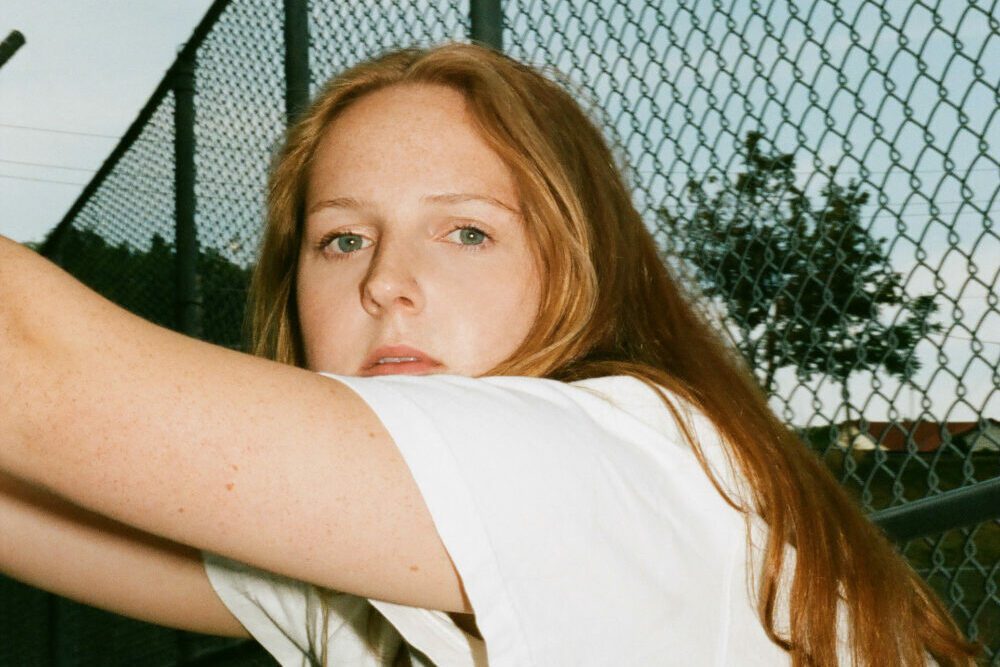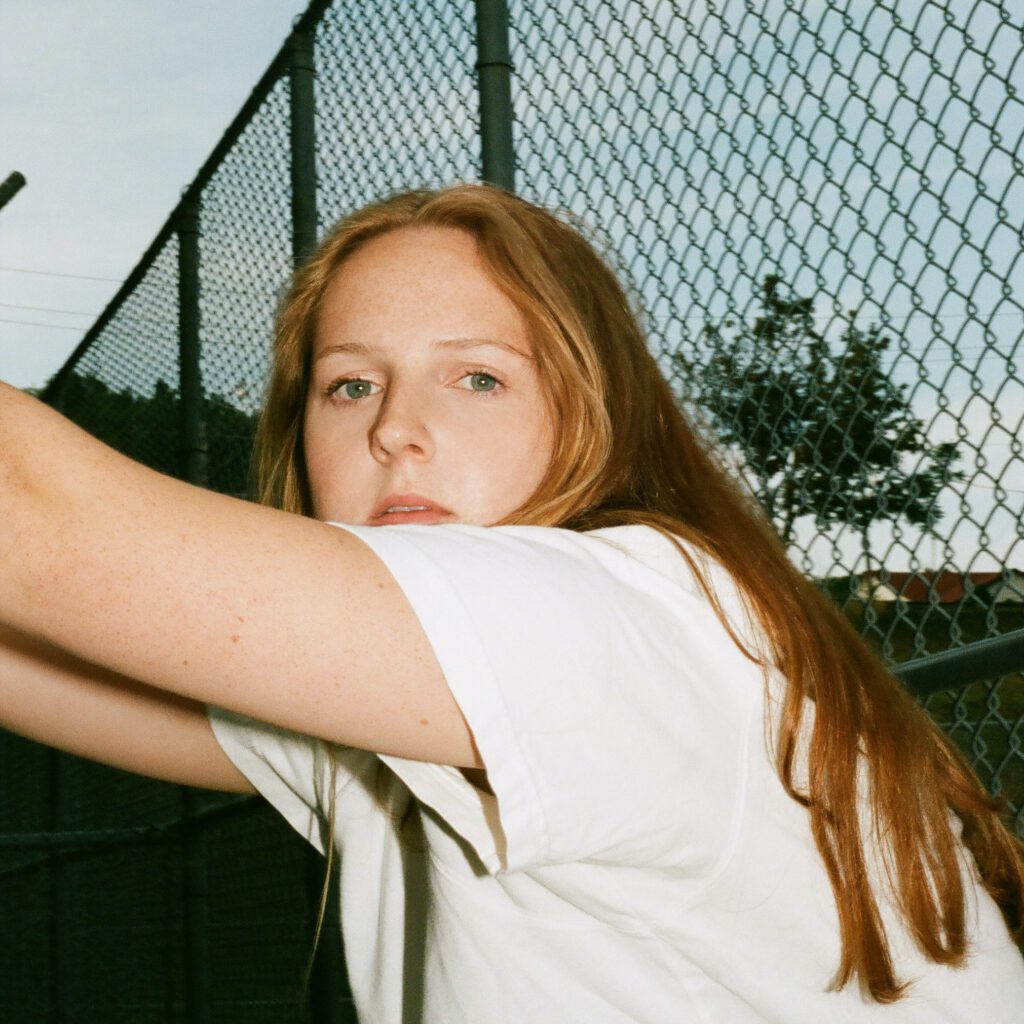Charlie Houston Grapples With the Anxieties of Growing Up on Debut EP I Hate Spring


On her debut EP, I Hate Spring (out April 30th on Arts & Crafts), Toronto-based artist Charlie Houston collects candid thoughts about the vulnerability of growing up and all the in-betweens that come with entering adulthood. The music, although largely undefined by any specific genre, is as tender as the time she’s navigating; each of the songs on the album touches on the experience of learning how to be authentically yourself beyond the confines of childhood expectations.
Houston uses familiar pop formulas that make for easy, fun listening while also sounding fresh and unexpected. She worked closely with producer Chris Yonge to find the right sound for the music, and although Yonge is more heavily influenced by artists like Mac Miller and Juice WRLD, they were able to create a sonic world that is Charlie’s all her own. “I think it’s a hybrid of indie, electronic, R&B, and a whisper of bedroom pop as well. When I’m writing songs I’m thinking more about if it sounds good than if it’s in a specific genre,” Houston says. The production on the album, which utilizes quirky sounds like telephones ringing and curling guitar riffs, leaves room for an unfiltered joy that belies the difficult topics addressed in the lyrics.
While I Hate Spring centers on her personal growth during her first prolonged period away from home – the five months she spent studying at NYU’s Clive Davis Institute – there’s an element to it that speaks universally about difficult transitions, particularly for young people. At NYU, Houston struggled with her mental health while at the same time exploring her sexuality and self-expression; leaving her small town in Canada and venturing into New York, a far more diverse and expressive atmosphere, Houston was given room to break down societal expectations. “I wasn’t around anyone who I grew up with so I wasn’t tied to any person that I was before moving there. In New York I could be whoever I wanted to be even though I was having a hard time 90% of the time,” she says. “I was existing in New York and trying to deal with myself. My sexuality was a huge thing that was coming to play in New York; I had my first experience talking to a girl there. I was very focused on that and exploring that at the time.”
Unfortunately, two weeks into her program, a negative experience with a pot brownie “unleashed this batch of anxiety that I never knew was possible,” Houston says. “People in the past had talked about their anxiety with me, but I never really understood what they were experiencing. I took this edible and it completely ruined my brain – I haven’t been the same since.”
Houston wrote I Hate Spring once leaving NYU and returning home, beginning with “Honey” in the spring and summer of 2019. It utilizes smooth riffs and down tempo percussion to portray the feelings of rejection and yearning. Houston croons, “Fucked up babe when you left/I’ve been calling you’ve been stalling/Because you know/I’m a mess,” exposing the subtle nature of desiring a love interest’s attention while acknowledging you’re not in a healthy place. The rest of the songs deal directly with her experiences, good and bad, at NYU.
“I’ve realized that I can’t write a song about an experience that I’m presently going through. It’s always a retroactive experience I’ve had in the past that I’m then writing about,” she explains. “19,” the focus track from the album, epitomizes all of the delicate experiences of being young and unsure. Opening the song with slow and smooth guitars, Houston describes the experience of feeling alone for the first time up until reaching the chorus: “I’m sure you’ll be just fine is what my parents say/They don’t know what it’s like/19 in modern day.”
The loose sound of the song reflects the recklessness escape she seeks via desire and drink, slurring the lines, “So let’s just go back to the party/Kiss each other like we’ve never kissed someone before/I’m just tryna clear my mind/I’m fucked up/Just enough to clear my mind.” Houston says the track is about not knowing how to deal with all the newness of being in a different environment, surrounded by a diverse array of people while navigating strange and unfamiliar spaces. Her social anxiety is visualized best through the line, “I’m freaking out/Can you tell/My hands are shaking in my pockets so I hide them well.”
Houston references Uber Eats and seeing people’s vacations on Instagram, which places her in a GenZ context, so while there’s certainly a discomfort with online relationships as is portrayed in “Calls,” Houston embraces her audience’s experience with ease. Meanwhile, the artist doesn’t use pronouns for any of the people she’s singing about, giving the songs a more universal relatability. “My main goal for music is to have it be as universal as possible and as inclusive as possible,” she explains, although she does admit that when she wrote the songs, she felt hesitant to explicitly acknowledge her forays into the queer experience.
“I wasn’t ready to sing about my relationships and let people know they were about women,” Houston says. “The songs I’m writing now use pronouns but that’s because I’m at a different place now than I was in then. I wanted those songs to be accurately representative of that time in my life.” As a result, the EP subtly touches on being closeted and not knowing how to navigate the coming out process. “Everyone in the LGBTQ community I think can understand that feeling of gay panic, where you don’t want someone to know you’re gay and you don’t know what to say,” she says. Being in this grey area of outness can be complicated, and making art about it pairs well with the idea of partial adulthood she discusses throughout the album.
Houston has just turned 20, she’s working through trauma and mental health and first loves, and she’s doing so in a world that’s just beginning to make space for voices like hers without questioning their authenticity. It’s not that she outright rejects genre, androgyny, or the use of pronouns in songs; rather, Houston allows the intersectional aspects of her identity to influence her music, embracing an organic and honest process that is authentic to her. Like so many other people of her generation, she displays herself genuinely, and it’s our responsibility as consumers to take her at her word. Charlie Houston asks us to “delete TikTok,” implores us to “do whatever the fuck you want with your life,” and she says she “wants to make music where everyone from a fetus to a 90 year old lady can enjoy it together.”
Follow Charlie Houston on Instagram for ongoing updates.

